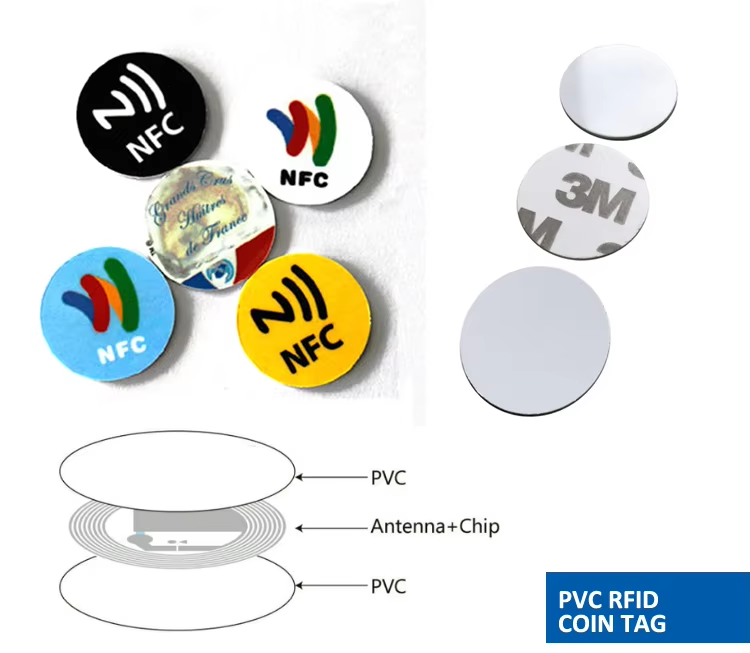
NFC Cards Speed Up NASTAR Ski Competitions!
NFC cards speed up NASTAR ski race entry with fast ID binding, waterproof design, and real-time score uploads—enhancing efficiency and player experience.
As a high-end hotel where user experience is the foundation of the brand, it is extremely important to provide and track high-quality, clean sheets and other supplies. Every misplaced linen or delayed delivery risks a negative review. This logistical headache is why forward-thinking hotels and industrial laundries are turning to RFID laundry tags, a technology that’s quietly revolutionizing textile management. Let’s see how these tiny things can play a big role in many areas.
A large hotel may have to replace tens of thousands or even hundreds of thousands of sheets and towels every week, but the traditional method generally relies on manual counting. This can easily lead to management chaos and problems such as inadequate cleaning.
Consider the lifecycle of a hotel towel:
At every step, human error could derail the process. A mislabeled batch might end up at the wrong hotel. A torn sheet might slip through quality control. Worse, hotels often overstock linens “just in case,” tying up capital and storage space.
RFID (Radio-Frequency Identification) tags are small, durable chips sewn into linens during manufacturing or retrofitted by laundries. Each RFID Laundry Tags holds a unique digital ID, enabling real-time tracking from the laundry floor to the hotel linen closet.
Here’s how it works:
For example, one luxury laundry service provider in London reduced manual counting labor by 90% after implementing RFID. Their system processes 40 tons of linens daily with pinpoint accuracy, ensuring hotels never run out of fresh stock.
End Manual Counting Forever
RFID readers scan hundreds of items per second—no more tedious hand counts. One hotel group reported saving 300+ staff hours monthly.
Slash Losses from Theft or Misplacement
Tags trigger alerts if linens stray from their route. A luxury resort reduced linen shrinkage by 60% within a year by tracking items from poolside cabanas to laundry trucks.
Optimize Inventory & Costs
Real-time dashboards show stock levels, wash cycles, and linen lifespan. Hotels can cut overstocking by 30% while ensuring 99% availability.
Boost Guest Satisfaction
No more “out of towels” complaints. RFID ensures replacements arrive before stocks dip below critical levels.
Data-Driven Sustainability
Track how many times a linen has been washed. Replace items before they fray, reducing waste. Analytics also reveal energy/water savings in laundry processes.
After a fire and pandemic disrupted operations, a UK-based laundry service rebuilt its 25,000 sq ft facility with RFID at its core. The results?
“Before RFID Laundry Tags, we’d have 10 staffers counting linens all day. Now, the system does it instantly—and catches errors we’d miss,” shared the company’s director.
Next-gen systems go beyond tracking. Machine learning algorithms analyze historical data to:
One hotel chain even uses RFID lifespan data to negotiate better linen procurement deals. “Knowing exactly how long our towels last changed how we buy them,” admitted a procurement manager.
While RFID’s benefits are clear, success hinges on quality hardware and tailored software. Industrial laundry environments demand tags that withstand high heat, moisture, and mechanical stress. At our factory, we’ve refined RFID solutions through collaborations with global laundries, ensuring:
RFID isn’t just a “nice-to-have”—it’s a competitive edge. Hotels using this technology report fewer guest complaints, lower costs, and even higher staff morale (no more counting towels in a dusty storeroom!).
Interested in a demo or case studies? Contact our team to see how RFID Laundry Tags can turn your linen chaos into a streamlined, profit-boosting system.
Because in hospitality, the difference between a 4-star and 5-star review often comes down to the little details—like a perfectly pressed pillowcase, arriving right on time.
Newest trends and common knowledge in RFID laundry tags.

NFC cards speed up NASTAR ski race entry with fast ID binding, waterproof design, and real-time score uploads—enhancing efficiency and player experience.
UHF Clothing Hang Tags: Track inventory in seconds, slash costs & boost sustainability. ISO-certified, customizable designs.

RFID Coin Tags are transforming industries in 2025, enhancing efficiency, security, and sustainability in retail, logistics, healthcare, manufacturing, and more.
Didn’t find what you want? Ask our manager for help!